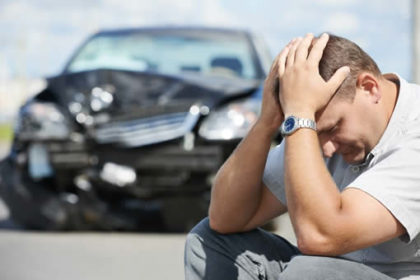
Attending at an Inquest
After the funeral is over and loved ones try to pick up the pieces. Many families are surprised when, after six weeks or more, a member of the Garda Siochána call to the family home to inform them of the date of the inquest of their family member.
The coroner system is one that many families come into contact with at a most distressing time.
This inquest usually takes place in the local courthouse or sometimes, in a hotel room. Many families that have to attend inquests are startled at the ‘courtroom-type’ scenario, with witnesses, lawyers, juries in some cases and verdicts.
When is an inquest necessary?
When a death occurs that is unexpected, unnatural, violent or unexplained – the coroner is notified. He or she may decide to ask for a post mortem and may hold an inquest. An inquest would not normally be held if a post-mortem examination of the body could explain the cause of death. In some deaths inquests are legally required.
Do you need a solicitor?
We regularly attend and advocate on behalf of bereaved families at coroner’s inquests. This job includes offering support, preparation for and representation at the hearing, and advice as to the outcome and the way forward.
We are instructed to represent bereaved families at Inquests following the death of a loved one arising from medical accidents in hospitals,accidents at work, road traffic accidents and unexpected deaths in a hospital.
There is no legal requirement for anyone to have such representation but if the deceased’s family has concerns e.g. over the care received while in hospital or how the accident happened, we endeavour to explore these issues to the best of our abilities within the constraints of the Inquest process. Whilst no allegations concerning liability can be made, crucial information can be obtained nonetheless.
What an Inquest does
An inquest is an official, public inquiry, conducted by the coroner and, in some cases, in front of a jury. The purpose of an inquest is to find out – when, where, how and in what circumstances a death occurred.
In advance of the Inquest, the Coroner will receive depositions from the relevant people involved, post mortem reports and medical records, if relevant. The Coroner may call medical or expert witnesses.
Many Clients find it hard to understand that the inquest is a fact-finding exercise – which means it is not to establish blame but rather to establish the circumstances surrounding the death.
At the conclusion of an Inquest, a verdict will be returned by the Coroner. The type of verdicts which can be returned include open verdict, misadventure, natural causes, accidental death or in some cases, unlawful killing.
The Bigger Picture
In many cases the inquest will result in recommendations being made to avoid the reoccurrence of similar deaths.
Often, Clients do pursue a civil case after an inquest, and as a result of the facts and findings that arise. This may be against an insurer, a public or corporate body which it appears are responsible for causing the death.
Whilst no allegations concerning liability can be made at an inquest, crucial information can be obtained which can be very useful in a subsequent claim for compensation.
Know your entitlements
Whilst nothing will ever adequately compensate you for your loss, you have a right to compensation if you are surviving dependent and the fatality was as a consequence of someone else being wholly or partially negligent. Surviving dependents include spouses, civil partners, parents and children of fatalities who were under 18 years.
Many Clients are concerned about the cost of engaging legal representation for an inquest and a recent High Court decision has been helpful by find that in circumstances where the death has been shown to be due to the wrongful act of another, it may be possible in the majority of cases to recover the cost of legal representation at an Inquest in the subsequent civil case.

